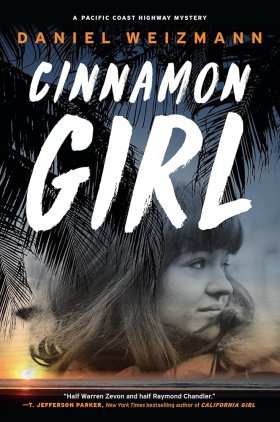“Well tell me.”
“It’s,” I said softly, “it’s just a favor for an old friend, okay? I probably shouldn’t say anything more.”
For a moment she froze—she was obviously itching to press it but didn’t. And I was grateful because, kind and earnest as she was, my gut told me she would not be able to handle it—homicide, breaking and entering, creeping outside the law with known felons.
“You came over,” I said to change the subject.
“It’s my day off.”
“And here you are playing nursemaid on your day off.”
“Yeah, right?”
“I’m so happy to see you.”
Our eyes met—pure, uncut tension—then she kept daubing. “Don’t move,” she said.
“Okay.”
She must have felt the heat because she straightened up, moved back a little, and said, “Let’s go out. I’m taking you out.”
“Where are we going?”
“You’re the native,” she said. “Show me the hot spots.” She studied the bruise one last time and said, “Yeah, out, definitely.
Let’s go.”
“Cool. And I won’t tell the waiter you beat me up.”
We drove west and she kicked off her shoes in the passenger seat and we talked and it was just crazy easy—easy like I didn’t remember with anyone for ages. She was an open book. She’d been playing guitar and singing her whole life, but she insisted it was a hobby, a secret one. The other night was only her second-ever time onstage. She grew up in rural upstate New York—she called it freezingly bucolic. She was the youngest of five siblings—her parents nicknamed her the afterthought, but she said they were loving. The sibs were all high achievers—one doctor, two lawyers in finance, and an associate producer for 60 Minutes. Both parents were celebrated professors, too—her mom taught something about Wittgenstein and law, and her dad was one of the leading authorities on Jewish life in Eastern Europe just before the Holocaust.
“So, like, the decimated,” I said.
“Yup—he’s the expert.”
“Heavy duty,” I said. “So you’re almost…the black sheep.”
“I guess so. I was about to get my master’s in geriatric social work but—I got cold feet.”
“I thought you came to Hollywood to hit the big time.”
“Me?” She laughed. “That’s not me.”
“Oh, come on—you’re a singer.”
“No, no, that’s just fun and games.”
“So…what brought you here?”
“Welllll. I had a bad thing with this guy in Ithaca. I’m still kind of reeling from it, actually.”
“He treat you badly?”
“The opposite—he was really good to me, he was great. But I just wasn’t feeling it. And I didn’t exactly ditch him at the altar, but I let it go on wayyy too long. I mean, we had invitations printed for the engagement party, deposits on the catering, flowers.” She shot me that serious-goofy look. “I ditched Mr. Right. I guess I flipped out.”
“You made a run for it.”
“Totally. I requested an emergency leave of absence from the university and broke up with him on the same day. Six hours later I packed my bags. I just—” She shrugged. “—carpe’d the diem.”
“How’d he take it?”
“He wasn’t all that surprised, but my parents went ballistic. My dad went into a major depression, like he was the one who got dumped.”
“Well,” I said, “you just…needed something else. Maybe your music.”
“Noooo—that’s just…like, my private compulsion.”
“What do your parents think about it?”
“They don’t know.”
“They don’t know…that you can sing like that?”
“Maybe vaguely, I mean, they’ve heard me sing, they know I play a little guitar—but they don’t know I just performed at an amateur hour. They would die.”
“Why?”
“I don’t think they’d get it. My father’s a very serious person.”

























